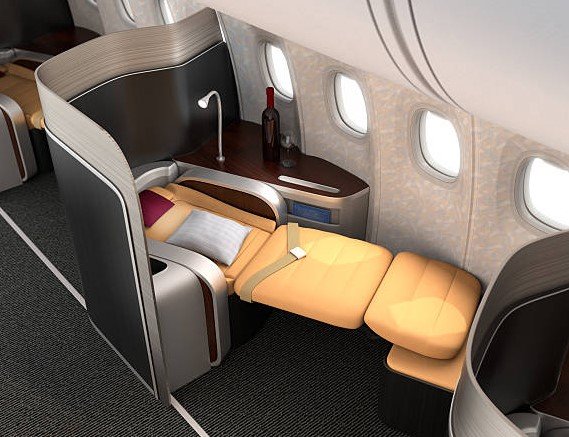Australian companies are ramping up spending on premium air travel, with a clear shift toward business class and premium economy seats for international flights. Flight Centre Travel Group reports this trend drove their corporate division’s profit growth in fiscal year 2025, as businesses prioritize comfort and productivity on long hauls.
Rising Demand for Premium Seats
Businesses across Australia show strong interest in upgrading travel options. Premium economy bookings jumped nine percent year over year, while business class rose five percent. Economy seats stayed flat, and first class dipped.
This shift comes as global business travel hits 2.327 trillion Australian dollars in 2025. In Australia, the leisure and business travel market reached 63.8 billion dollars, projected to grow to 77.94 billion by 2032 at a 2.9 percent annual rate.
Companies view premium cabins as key to employee satisfaction and efficiency. Many firms now budget more for travel that supports growth, especially in sectors like manufacturing, construction, IT, and finance.

Airfare Trends and Cost Insights
International return fares from Australia varied in August 2025 compared to the previous year. Premium options saw notable changes, influencing corporate choices.
Here’s a breakdown of average fare shifts:
| Cabin Class | Percentage Change | Dollar Increase |
|---|---|---|
| Economy | +2% | +$38 |
| Premium Economy | +10% | +$400 |
| Business | +0.1% | +$10 |
| First Class | +3% | +$550 |
Business class fares remained stable, making them attractive for firms watching costs. Premium economy, despite the rise, offers a middle ground between economy and higher tiers.
Experts note airlines are investing heavily. Qantas plans boutique hotel style experiences for flights to New York and London. Singapore Airlines spent 1.1 billion dollars on new seats for its A350 fleet.
Global Influences on Australian Travel
Worldwide trends shape Australia’s corporate travel scene. Airlines race to innovate with lie flat seats, personalized service, and wellness zones. Qatar Airways’ Qsuite redefined business class luxury, drawing more Australian travellers through hubs like Doha.
In 2025, 45 percent of global corporate customers plan to increase travel budgets. In Australia, that figure hits 47 percent, signaling confidence in economic stability.
Recent data shows Dubai International Airport leading in premium lounges, with features like shower spas and fine dining. This appeals to Australian executives on routes to Europe and the Middle East.
Industry Shifts and Future Outlook
Corporate travel evolves with a focus on value and comfort. Premium economy surges as a cost effective upgrade, especially on long hauls where rest boosts productivity.
Air New Zealand’s upcoming SkyNest pods in 2026 will let economy passengers book lie flat sleep options for a fee. This innovation highlights the demand for better inflight rest.
Australian businesses in key industries lead this trend. Manufacturing and IT firms book more premium seats to keep teams fresh for meetings.
Logical reasoning suggests stable business fares encourage upgrades. As costs rise in other areas, travel remains a smart investment for revenue growth.
Challenges and Opportunities Ahead
Not all changes favor travellers. First class fares climbed, leading to fewer bookings. Economy options saw minor increases, but demand stays steady for budget conscious trips.
Opportunities arise from airline alliances. Qantas expanded ties with Qatar Airways in June 2025, routing more corporates through premium hubs.
Businesses must balance budgets with employee needs. Experts advise reviewing travel policies to maximize returns.
Key factors driving premium cabin popularity include:
- Enhanced productivity on long flights
- Stable or modest fare increases
- Innovations like private suites and wellness areas
- Growing corporate confidence in Australia
Impact on Business Growth
This premium travel boom ties to broader economic signals. Australian firms report higher intentions to spend on travel, up from previous years.
In the first half of 2025, certain cities led in corporate spend increases, reflecting regional business activity.
As global travel rebounds, Australia’s market positions itself for steady growth. Companies that invest in premium options may see better employee loyalty and deal making success.
What do you think about this shift to premium cabins? Share your thoughts in the comments and pass this article along to colleagues who handle business travel.








